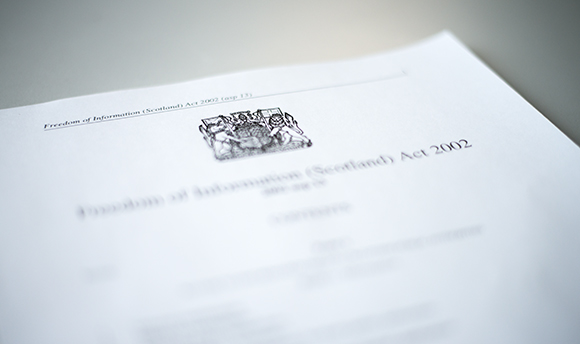Senate Standing Orders
SENATE STANDING ORDERS
Adopted 30 May 2007
Revised December 2010
Revised October 2019
Revised 8 March 2023
1. Ordinary meetings
A minimum of five ordinary meetings of the Senate shall be held between the months of October and June each year, on such days and at such times as the Senate shall from time to time determine, such determination to be made no later than six months in advance of the first such ordinary meeting.
2. Extraordinary meetings
Extraordinary meetings may be called on the instructions of the Convener, the Deputy Convener or on a requisition signed by not less than one third of the members.
3. Notice of meetings
The Secretary to the Senate shall issue notice of a meeting of the Senate in writing to members and other persons who are to be in attendance at the meeting five days prior to each meeting (and shall use reasonable endeavours to do so seven days prior to each meeting).
In the case of members and senior management who are to be in attendance at the meeting, the notice shall specify the date, time and place of the meeting, the agenda and the business to be considered. In the case of other persons who are to be in attendance at the meeting, the notice shall specify the date, time and place of the meeting, and such other information as is necessary for the purposes of their attendance at the meeting.
Where such notice is not given the meeting may only proceed upon the suspension of this standing order in accordance with standing order 18.
4. Agenda
The agenda for ordinary meetings of the Senate shall be as follows:
1. Apologies for absence.
2. Determination of other competent business
In respect of each matter that has been notified for this purpose to the Secretary by members with at least twenty-four hours’ notice, the Senate shall determine whether that matter is appropriate for discussion by the Senate, and, where necessary, determine whether that matter shall be discussed under ‘other competent business’, ‘items for information’ or otherwise.
3. Other competent business
The Senate shall discuss such of those matters as have been approved for inclusion under ‘other competent business’ under agenda item 2.
4. Items for Information
The Senate may only discuss any matter designated as an ‘item for information’ following a determination to that effect under agenda item 2.
5. Items for discussion
The Senate shall discuss any items which have been approved for discussion in accordance with standing order 4.
6. Reporting
The Senate shall consider any reports from standing committees, ad hoc committees or working parties laid before the Senate.
7. Ordinary business
The Senate shall consider ordinary business brought before it.
5. Agenda items - notice requirements
A member who wishes to include an item in the agenda for any meeting must submit a request to that effect to the Secretary with at least ten days’ notice. The Secretary will advise the Convener of the proposed agenda item. The Convener will decide whether the item is appropriate for discussion by the Senate. The Secretary will inform the member of the Convener’s decision in relation to his or her proposed agenda item. If the Convener agrees to the inclusion of the proposed agenda item, the Secretary will include that item on the agenda and circulate the revised agenda with the notice for that meeting.
6. Agenda items - order of voting
Amendments to an agenda item shall be considered as follows:
6.1 where there is a single amendment, a vote on that amendment will take place;
6.2 where there is more than one amendment, a vote will take place on each amendment in the order in which the amendments have been put forward; those amendments which have been agreed (if any) will then be consolidated into a single amendment; and
6.3 the agenda item (as amended) will then be voted upon.
7. Conflicts of interest
Members shall, in exercising functions in that capacity, act in good faith in the interests of the Senate and shall declare any circumstances capable of giving rise to a conflict of interest. For the purposes of these standing orders, a conflict of interest means a financial, personal or other interest held by a member or a person connected with the member in relation to a matter to be discussed or determined by the Senate, otherwise than in their capacity as member.
8. Decisions of the Senate
No member shall be entitled to have minuted their dissent from any decision of the Senate, except at the meeting at which the relevant decision has been passed, provided that any member not present at the meeting at which the relevant decision was passed, may at the next meeting have their dissent minuted.
No agenda item, nor any amendment to an agenda item, shall be moved if it involves reconsideration of any question or matter which has been decided or adopted by the Senate at any time within the preceding six months, unless it is moved by the Convener, or signed by the mover and by not less than one-third of the total members of the Senate.
9. Minutes
Draft minutes of each meeting of the Senate shall be sent to the members and any senior management who were in attendance at the meeting not later than twenty-one days after each such meeting, and shall be submitted at the next meeting of the Senate for approval as an accurate record.
Other persons who were in attendance at the meeting shall be sent a complete set of the published minutes.
10. Quorum
The quorum for meetings of the Senate shall be fifty percent of the members, plus one.
11. Convener and Deputy Convener
The Principal shall act as Convener at meetings of the Senate, and the Deputy Principal shall act as Deputy Convener in the event of their absence.
The Convener shall preside at meetings of the Senate, and shall be entitled to vote on all items of business in the same manner as other members. In the case of an equal number of votes, the Convener shall have a second or casting vote.
Subject to these standing orders, the Convener shall decide all questions of order.
The Deputy Convener shall preside at any meetings at which the Convener is not present. If both the Convener and the Deputy Convener are not present at a meeting, the Secretary shall appoint one of the Deans of School to preside as Acting Convener. The Deputy Convener or Acting Convener appointed to preside over a meeting (as appropriate) shall have the same powers as the Convener would have had in relation to that meeting.
12. Membership
The Court shall establish a Senate which shall be constituted and regulated in a matter specified by the Court from time to time on the recommendation of the Principal, provided that the constitution of the Senate is in accordance with Chapter 2 of Part 1 of the Higher Education Governance (Scotland) Act 2016.
Membership of the Senate is determined in accordance with the requirements of the Higher Education Governance (Scotland) Act 2016, and codified within the Queen Margaret University, Edinburgh (Scotland) Order of Council 2007 and the Queen Margaret University Amendment Order of Council 2019.
Membership categories are:
(a) The Principal of the University.
(b) The Deputy Principal of the University.
(c) Heads of Division.
(d) Persons appointed by being elected by the academic staff of the institution from among their own number as follows:
Two members of academic staff elected by each of the academic Divisions of the University.
(e) Persons appointed by being elected by the students of the institution from among the students of the institution as follows:
The President of the Students’ Association
An office bearer of the Students’ Association
One Student from each of the two Schools
Reference to students of the University includes all persons holding sabbatical office in the Students’ Association, whether or not they remain as students of the University during their period of office.
(f) Such other persons appointed in accordance with a decision of the University Court, namely:
University Secretary [Secretary]
Deans of School
Director of IGHD
Head of the Graduate School
Chief Operations Officer
Director of LEAD
Conveners of standing committees of the Senate, not already in membership.
The Senate is constituted in such a way that (i) more than 50% of its members fall within subsections 12 (d) and (e), and at least 10% of its members fall under subsection 12 (e).
![]() 13. Election of members of Senate
13. Election of members of Senate
Elections are conducted in accordance with rules made by the governing body of the University, which is the University Court.
13.1 Election of members of Senate by academic staff
The procedure for electing a member to the Senate from amongst the academic staff shall be as follows:
a) The election procedure will be invoked by the Secretary upon the attention of the members being drawn to the occurrence of a vacancy.
b) All academic staff will be issued with instructions for nominating candidates for election to the Senate from amongst their number. Completed nomination forms, duly signed by a person proposing, a person seconding and the nominee, must be returned to the Secretary within fourteen days from the date of issue of the nomination forms (“the return date”). Nomination forms received after the return date shall be deemed void.
c) If only one nomination is received, the Secretary will declare by email to all academic staff and/or by posting a notice on the University intranet, the day after the return date, the successful candidate.
d) If more than one nomination is received, the Secretary will issue to each member of the academic staff, seven days after the return date, an electronic ballot paper, a list of candidates, and accompanying statements from the candidates of not more than one hundred words.
e) The timescale for election will be five days from the date of issue of the ballot paper. Academic staff will be invited to place their vote by 3.30pm on the fifth day, after which time no further votes will be accepted.
f) After the deadline for the return of votes, the Secretary shall within a further twenty-four hours declare the result of the election by email to all academic staff and/or by posting a notice on the University intranet. The candidate with the highest number of votes will be declared successful.
g) Elections will be conducted during the academic session only.
h) Where the Secretary and/or the Assistant Secretary, Governance and Quality Enhancement is/are not available, the Principal shall appoint officer(s) of equal standing.
14 Period of Office of members
A member appointed under sub-section 12 (d) shall hold office for a 3 year term. On the expiry of that term, such member shall be eligible to be re-elected for one further term of a maximum of 3 years. Such member shall not serve as a member for more than 6 years. For the purpose of calculating 6 years, any period of office as a member shall be counted towards the 6 year term.
15 Ordinary business
The Senate shall transact all ordinary business at its ordinary meetings.
The ordinary business of the Senate shall consist of such items as are deemed necessary by the Senate to fulfil the functions delegated to it in terms of article 14 of the Order of Council.
Without limiting the foregoing, the ordinary business of the Senate shall include:
- the function of conferring on any person (and depriving any person of) higher and other education awards including degrees, diplomas, certificates and other academic awards or distinctions and honorary degrees;
- the development and maintenance of codes of conduct and regulations required for the maintenance of standards and good order within the University;
- the approval of new and amended taught and research degree programmes; and
- the receipt and consideration of recommendations from standing committees of Senate, including those relating to the appointment of External Examiners.
16 Committees of the Senate
The Senate may from time to time set up such standing committees as it deems necessary. The Senate may also from time to time set up such ‘ad hoc’ committees and working parties as it deems necessary in relation to specific projects.
In relation to any such standing committees, ‘ad hoc’ committees and working parties, the Senate shall determine their terms of reference and may amend such terms or reference from time to time as it sees fit.
Any committees or working parties set up by the Senate shall conduct their business under these standing orders (necessary changes excepted).
17 Confidentiality and freedom of information
The notice (including any supporting papers) for each meeting of the Senate shall be circulated in accordance with standing order 3, and draft minutes from the previous meeting shall be circulated in accordance with standing order 9. Prior to each meeting, circulation of such notice, supporting papers and draft minutes shall be restricted to the persons entitled to receive them in accordance with standing orders 3 and 9.
After each meeting of the Senate the minutes of the previous meeting (as approved by the Senate) shall be made available to students and staff of the University, unless the Senate, having regard to any duty of confidence or other obligation owed to any party to whom the minutes relate, and to any right of legal privilege in relation to such minutes, determines otherwise.
Papers relevant to a meeting of the Senate shall be made available to students and staff of the University after the meeting. In considering publication, the Secretary shall have regard to any duty of confidence or other obligation owed to any party to whom the papers relate, and to any right of legal privilege in relation to such papers.
Nothing in these Standing Orders shall prevent the University from disclosing information (including, without limitation, information relating to the business of the Senate or of any of its committees or working parties) under the Freedom of Information (Scotland) Act 2002 and/or the Environmental Information (Scotland) Regulations 2004 (including any codes of practice or guidance issued thereunder).
18 Modifications to Standing Orders
These Standing Orders shall not be altered or repealed, either in whole or in part, except at a meeting of the Senate held on at least one month’s notice, provided that not less than two thirds of the members of the Senate are present at the meeting and shall so decide by a majority vote.
19 Suspension of Standing Orders
In case of urgency any one or more of these standing orders may be suspended at any meeting of the Senate, as regards any business at such meeting, provided that not less than two-thirds of the members of the Senate are present at the meeting and shall so decide by a majority vote.


